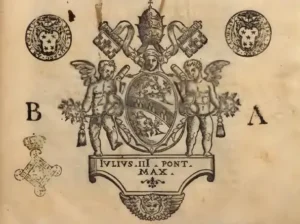 I finally got hold of the book”Failure of a mission" by Sir Nevile Henderson. It was not just any mission that Henderson failed, but the old man was one of those responsible for the breakdown of the negotiations at the end of August 1939. Henderson had lived in Berlin for two years when he was one of the main actors in the breakdown of the negotiations with Germany Together.
I finally got hold of the book”Failure of a mission" by Sir Nevile Henderson. It was not just any mission that Henderson failed, but the old man was one of those responsible for the breakdown of the negotiations at the end of August 1939. Henderson had lived in Berlin for two years when he was one of the main actors in the breakdown of the negotiations with Germany Together.
The book was published as early as April 1940 and should be seen as a way for Henderson to explain and justify his own decisions regarding the negotiations and the outbreak of war to the public. In April 1937 he was appointed by the king as ambassador in Berlin and he describes that at that time his German was "extremely rusty". Among the first things he did upon his appointment was to obtain two copies of "Mein Kampf" to study on the way to Germany.
Henderson began early on to map Hitler, how he worked and the Nazi organization. There is a wealth of information about Hitler that he writes about. During his years in office, Henderson was in the habit of asking those in close contact with Hitler what leadership qualities the Führer possessed. Almost everyone answered with the word "Fingerspitzgefühl".
Baron von Neurath said that Hitler was very interested in history and had studied the life of the soldier Oliver Cromwell. Göring confirmed to Henderson that Hitler had studied Cromwell's (Protector) life and read two books about him.
Henderson's explanation for World War II
In the appendix, there is some diplomatic communication between the royal English government and "Mr. Hitler" where it is clear what demands Germany made at the outbreak of war.
According to Henderson, the key explanation for World War II was Hitler's fault. The second reason was that Hitler listened to von Ribbentrop and a small clique of Nazi veterans and gangsters whose names would never be known. Now in 1939 it was those who followed Hitler and the Nazis and not the Germans as a race who were the real enemies. The third reason for the war was Heinrich Himmler and the black shirts in the SS and the secret police.
In the book there are several examples of that time's thoughts about ethnic groups. Henderson reflected that during World War I it was the Prussians, who he believed had a lot of Slavic blood in them, that they had seen as their real enemy. In one paragraph he writes that not all dictators are reprehensible and suggests that Hitler may have drawn parallels with the Jews in Germany with Ataturk (Mustapha Kemal) who built the new Turkey and how he had expelled the Greeks from the country. (page 21).
What Henderson thought of Göring
Among the Germans he respected were Göring, Dr. Gunther, Graf, Schwering, von Krosiggk, Dr. Lammers and others.
Göring and the concentration camps
At one point, Henderson spoke to Göring about the brutalities at the Dachau and Bechenwald concentration camps and tried to persuade Göring to close them:
”His answer was typical. After listening to all I had to say, he got up without a word and went to a bookcase, from which he took a volume of the German Encyclopaedia. Opening it at Konzentrationslager (concentration camps) he read out First used by the British in the South African War". p. 29
Göring had nothing more to do with the concentration camps, writes Henderson in his book, which must have been 1939-1940 (unless this was a later addition to the book). Despite that, Göring originally founded the camps when he was a minister in Prussia, and it is therefore not entirely unlikely that these were founded on the English model. page 80
After a power struggle with Himmler (sometime after 1936), Göring had lost control of the Prussian police and subsequently the Gestapo had grown in importance. The camps were under Himmler's control. (page 28 f).




